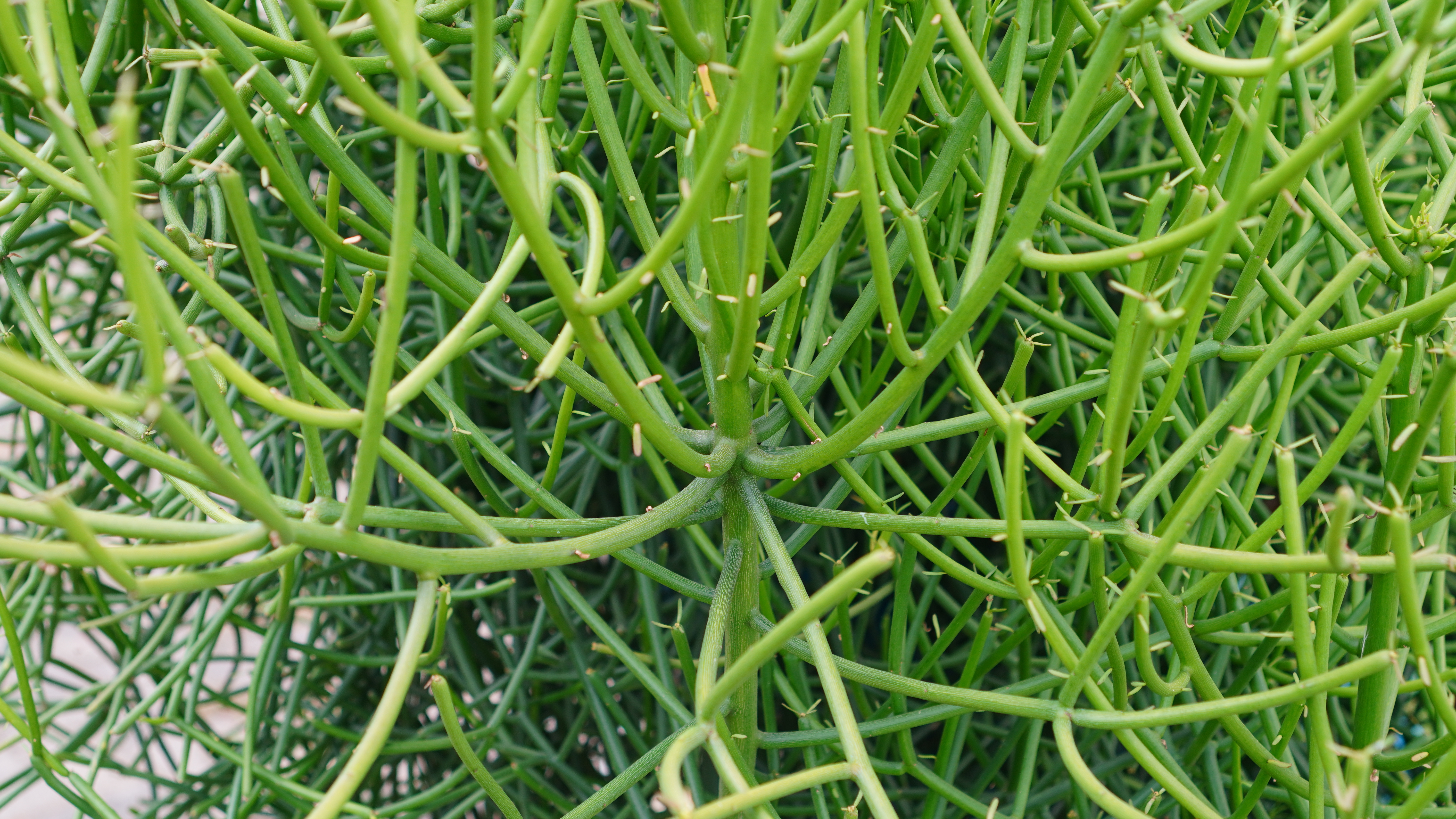The Shera plant, commonly known as the pencil tree, offers a multitude of health benefits through its various parts. The roots and twigs of the pencil tree are utilised in the treatment of ulcers, piles, rheumatism, and stomach pain. The stem wood of the pencil tree is employed in the treatment of leprosy and numbness in the hands and feet.
Botanical description
The plant is commonly known as Indian tree Spurge, naked lady, pencil tree, pencil cactus, fire stick, or milk bush. The pencil tree is a small shrub or tree that can reach a height of up to 7 metres. Its branches are as thick as pencils, smooth, green, and succulent. The plant features a fleshy, cylindrical stem with thin, succulent twigs that often grow in whorls. The oval leaves, measuring 1 to 2.5 cm in length, tend to drop off early. It contains a milky sap that is both poisonous and caustic. The yellow blossoms can be found at the tips of the branches.
More information
The name 'Shera' reflects the plant's bold, robust nature – much like a lion in the world of Ayurvedic healing. At Sunad Garden, we began offering the Shera Plant to bring a strong, natural remedy into daily wellness routines. Traditionally valued for its powerful medicinal properties, this plant’s roots and twigs are used for managing ulcers, piles, and joint pain, while its stem helps ease numbness and supports skin health. With its hardy presence and health-enhancing potential, the Shera Plant is a must-have for holistic home gardens. Perfect for boosting stamina and restoring balance the natural way. Keep the plant in an area with ample sunlight. It is recommended to provide adequate water supply and periodic application of manure to promote optimal plant growth.

